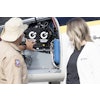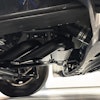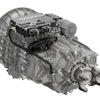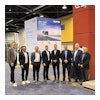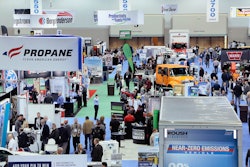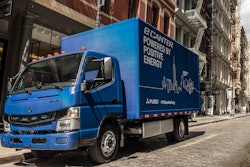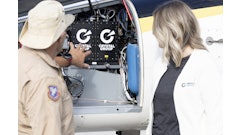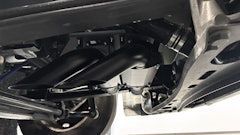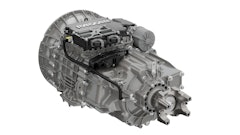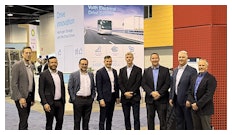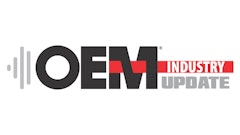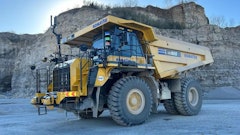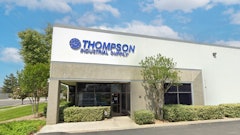NFI Group Inc., formerly New Flyer Industries Inc., the leading transit bus and motor coach manufacturer and parts distributor in North America, has announced its financial results for 2018 Q4 and Fiscal 2018.
“Fiscal 2018 was another successful year of strengthening NFI’s market leading positions in North American bus and motor coach manufacturing and parts distribution resulting in our deliveries and revenue at record levels,” says Paul Soubry, President and Chief Executive Officer, NFI. “While we achieved those significant milestones, we did experience adverse impacts in 2018, several of which are non-recurring, as a result of; margin pressure within the private motor coach market, startup losses associated with a new parts fabrication facility, the termination of MCI’s agreement with Daimler to distribute German built Setra motor coaches, and the losses incurred by the acquisition of a distressed fiberglass reinforced plastic supplier acquired in Fiscal 2017. Notwithstanding these issues, we are very pleased with our ability to continue to generate strong free cash flow and return cash to shareholders in the form of our increased annual dividend and share repurchases under our NCIB. As we look forward to Fiscal 2019 we expect the significant investments we’ve made in new product models, zero-emission buses, facility upgrades and LEAN processes, parts fabrication, and IT harmonization will all contribute to NFI maintaining our leading positions, improving profit margins and generating free cash flow.”
2018 Q4 Financial Results
Manufacturing revenue increased by $13.3 million, or 2.4%, in comparison to 2017 Q4 primarily driven by higher average transit bus selling prices and a full quarter contribution from ARBOC, slightly offset by lower new and pre-owned coach average selling prices.
Aftermarket revenue decreased by $5.9 million, or 6.5%, compared to 2017 Q4, primarily due to lower volumes and a $1.2 million impact from lost parts sales as a result of Daimler’s termination of MCI’s Distribution Rights Agreement (“DRA”) to sell and support German made Setra motor coaches in the U.S. and Canada.
Manufacturing Adjusted EBITDA decreased by $10.0 million, or 13.7%, due to lower coach and transit bus volumes, pricing pressure on new and pre-owned coach sales and startup losses incurred in the Shepherdsville parts fabrication facility (operated by NFI subsidiary, KMG Fabrication Inc.) of $3.4 million. These items were partially offset by improved margins for transit buses.
Aftermarket Adjusted EBITDA decreased by $0.5 million compared to 2017 Q4. The decrease is primarily due to the $0.6 million impact from termination of the DRA plus lower sales volumes offset by decreased sales and general and administrative (SG&A) expenses.
Net earnings during 2018 Q4 decreased by $33.3 million, or 43.8%, compared to 2017 Q4, and Net Earnings per common share of NFI (Share) decreased by $0.52. In addition to the EBITDA decrease, income tax expense increased by $16.9 million, interest expense increased by $7.5 million, as a result of strategic initiatives (including the acquisition of ARBOC and repurchases of Shares under the company’s NCIB), and depreciation increased by $2.0 million. The increase in income taxes was primarily due to the impact of U.S. tax reforms in December 2017 which resulted in a $9 million income tax recovery in 2017 Q4 which did not recur in 2018 Q4.
Adjusted Net Earnings during 2018 Q4 decreased by $37.2 million compared to 2017 Q4, primarily due to the previously mentioned impacts on Net Earnings. The decrease in 2018 Q4 Adjusted Net Earnings excludes the 2017 Q4 costs associated with corporate and strategic initiatives of $2.2 million and gain on bargain purchase of Sintex-Wausaukee Composites Inc., the Wisconsin based fiberglass reinforced polymer (FRP) business acquired in 2017 Q4, both of which did not recur.
Fiscal 2018 Financial Results
Manufacturing revenue increased by $129.2 million, or 6.4%, compared to Fiscal 2017. The increase was primarily driven by higher transit bus volumes, higher average transit bus selling prices, and the full-year contribution from ARBOC, offset by lower new and pre-owned coach volumes and lower average coach selling prices. The inclusion of the acquired Wisconsin FRP business also contributed to the increase. The termination of the DRA led to a decrease in new coach volumes and revenues of $7.7 million.
Aftermarket revenue increased by $7.9 million, or 2.1%, compared to Fiscal 2017, due to increased volume and the impact of ARBOC parts sales partially offset by the termination of the DRA, which decreased revenue by $2.7 million.
Manufacturing Adjusted EBITDA increased by $3.5 million, or 1.5%, compared to Fiscal 2017. The increase is primarily due to higher transit bus volumes and the full year results of ARBOC offset by pricing pressure on new and pre-owned coach sales, KMG startup losses of $6.6 million, $0.9 million impact from the termination of the DRA and losses from the acquired Wisconsin FRP business.
Aftermarket Adjusted EBITDA decreased by $6.1 million compared to Fiscal 2017. The decrease is primarily due to lower margins, combined with the $1.2 million impact from the termination of the DRA, partially offset by lower SG&A expenses.
Net Earnings during Fiscal 2018 decreased by $31.5 million, or 16.5%, compared to Fiscal 2017. In addition to the factors negatively impacting Adjusted EBITDA by $3.5 million, depreciation expense increased by $10.2 million, interest expense increased by $9.7 million, as a result of strategic initiatives (including the acquisition of ARBOC and repurchases of Shares under the Company’s NCIB), past service cost adjustment expense of $6.5 million, and foreign exchange translation expense of $3.3 million further contributed to the decrease. Fiscal 2018 Net Earnings were also negatively impacted by the previously mentioned $16.9 million increase in taxes in 2018 Q4 compared to 2017 Q4 primarily due to the nonrecurring impact of U.S. tax reforms in December 2017.
Adjusted Net Earnings during Fiscal 2018 decreased by $26.0 million compared to Fiscal 2017. The decrease was primarily due to the previously mentioned impact on Net Earnings. The Fiscal 2018 Adjusted net earnings included a one-time $4.9 million negative impact relating to past service cost adjustment associated with a new collective bargaining agreement, which did not occur in 2017.
Outlook
Based on NFI’s current master production schedule combined with its firm backlog, anticipated option conversions and new orders anticipated to be awarded by customers from procurements, management reaffirms its expected delivery guidance of 4,455 EUs in Fiscal 2019, an increase of 3.3% over Fiscal 2018.
Management expects the heavy-duty transit bus market in 2019 to remain healthy, while the private motor coach market is expected to continue to experience headwinds. Overall, Management believes the demand for low-floor cutaway and medium-duty buses is promising.
Zero Emission Buses (ZEBs) continue to be an area of growing focus for New Flyer customers. ZEBs currently represent approximately 5% of New Flyer’s total backlog, with significant orders from major cities including: Toronto, Boston, Minneapolis, San Diego, New York, Seattle, Portland, Oakland, and Vancouver. In August of 2018, New Flyer also received Canada’s largest ever battery-electric bus order from two Quebec operators. To further strengthen NFI’s ZEB offering, in 2019 Q1 the company launched New Flyer Infrastructure Solutions, a service aimed at providing safe, reliable, smart and sustainable charging and mobility solutions to public transit customers.
NFI Parts continues to focus on numerous strategic initiatives to counter competitive intensity and deliver profit growth. These initiatives include additional focus on vendor managed inventory (VMI) programs, an enhanced product offering, and capitalizing on the implementation of a common IT platform across the aftermarket business.
With the addition of MCI and ARBOC, the company’s annual delivery schedule now has an element of seasonality due to the nature of each market segment and the annual production and vacation schedule of each manufacturing facility. Overall, management anticipates deliveries will tend to be higher in the second quarter and the fourth quarter of the year when compared to the first and third quarters. These seasonality factors will be reflected through the company’s financial results for those respective periods. Within NFI Parts management expects there to be typical quarter-to-quarter volatility.
Management advises that 2019 Q1 results will be negatively impacted by unusual factors including: adverse winter weather conditions in Minnesota and North Dakota causing New Flyer and MCI to miss a number of production days, new model launches impacting production line efficiencies and throughput, and select ARBOC chassis supply disruption, which management expects to resolve in 2019.
Daimler’s termination of the DRA had an impact on NFI’s Fiscal 2018 results, however, management expects the negative impact to be significantly reduced in Fiscal 2019. Fiscal 2018 was also impacted as a result of startup losses associated with KMG commissioning its 315,000 sq. ft. facility, which is a strategic long-term investment needed to meet increased U.S. content requirements taking effect in October 2019. Management expects KMG will continue to negatively impact Adjusted EBITDA for the first half of 2019, prior to the facility achieving break-even status in the second half of the year and beginning to provide a positive return on the $30 million investment made to fabricate parts for New Flyer, MCI, ARBOC and NFI Parts. In aggregate, these two items negatively impacted Fiscal 2018 Adjusted EBITDA by $8.7 million.
Management expects Property, Plant and Equipment expenditures for Fiscal 2019 to be in the range of approximately $50 million to $60 million. Management continues to anticipate that the Company's effective tax rate for Fiscal 2019 will be in the range of 29% to 31%.
Executive Leadership Transition
NFI Group Inc. Executive Vice President and Chief Financial Officer Glenn Asham has announced that he will retire effective March 31, 2020. Asham first joined New Flyer in 1992 as Corporate Controller and became CFO in 2005. Over his 27 years with the Company, Mr. Asham played a critical role in actively leading the company’s finance, tax and accounting teams. His career has been defined by several major milestones including a 2005 initial public offering that moved the company from private ownership to an Income Deposit Security (IDS) listed on the TSX and the company’s 2011 conversion from an IDS to a common share structure. Asham championed the company’s numerous refinancing initiatives, a number of public offerings, and the acquisition of seven companies during his tenure. NFI has engaged global executive recruitment firm Korn Ferry to commence a search for Asham’s successor.
